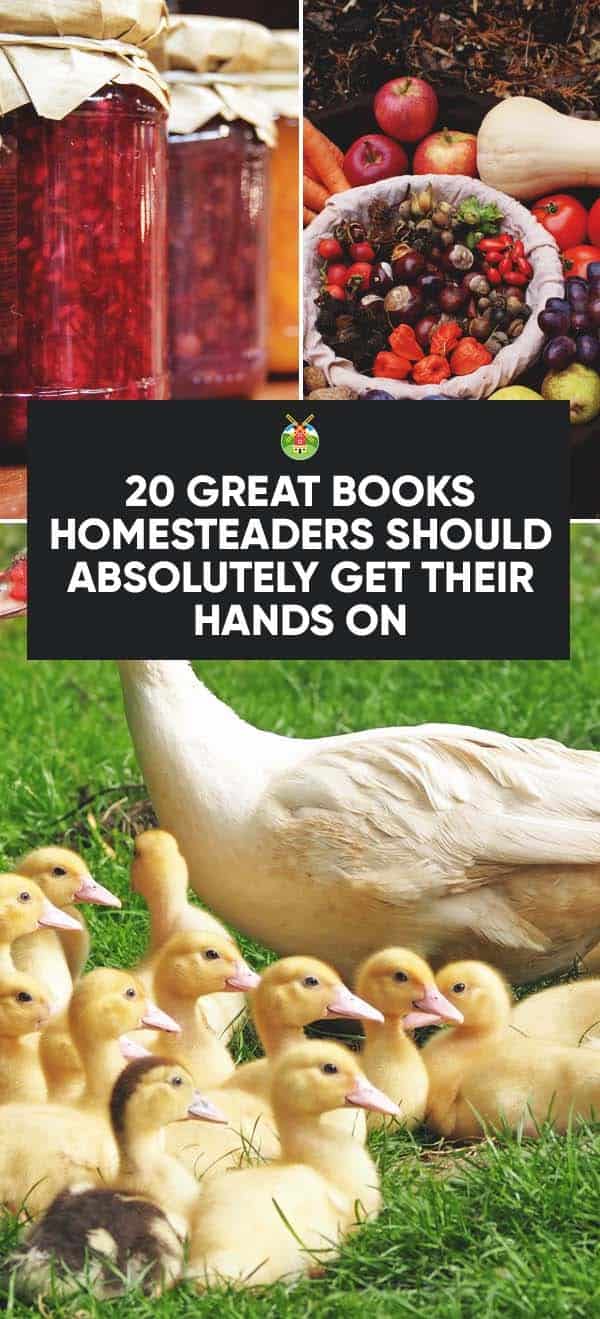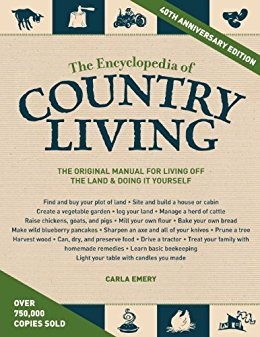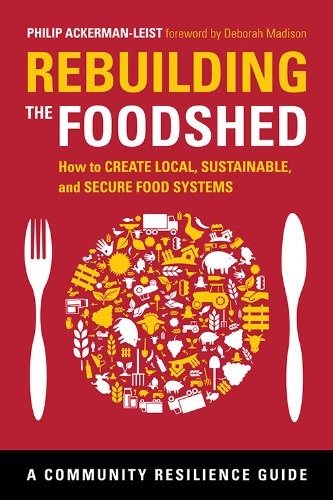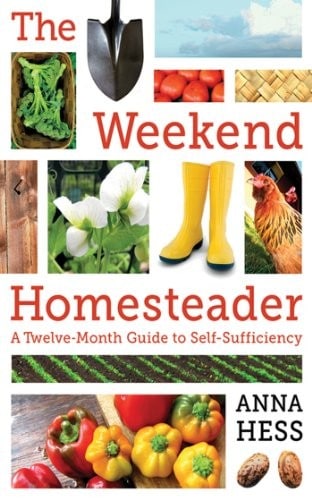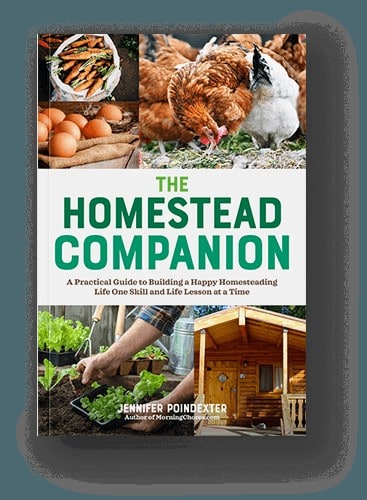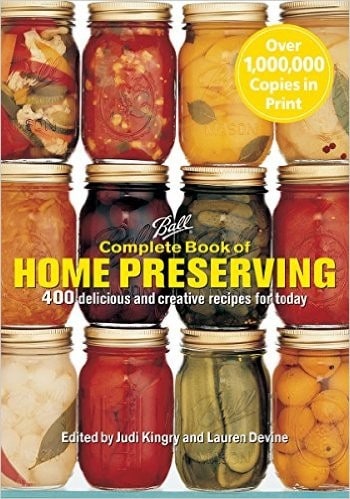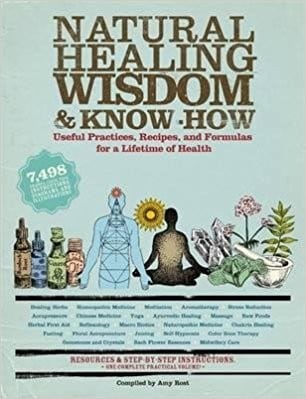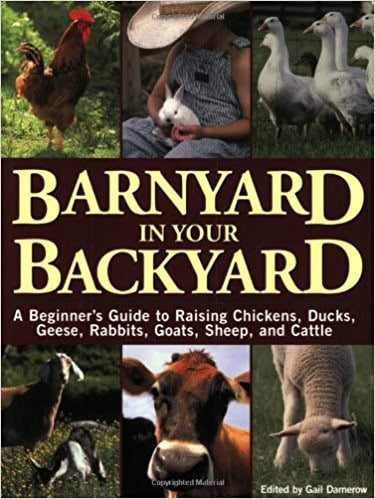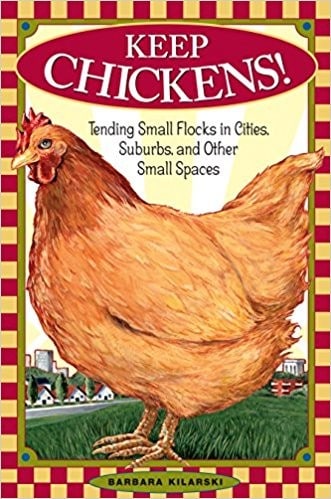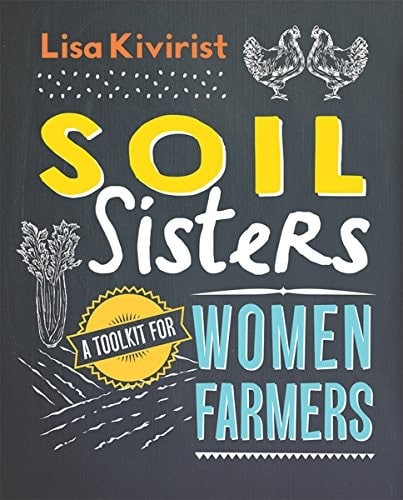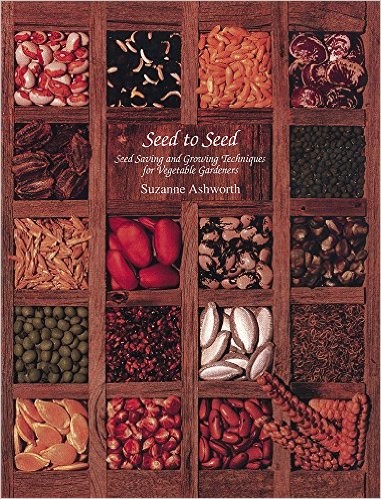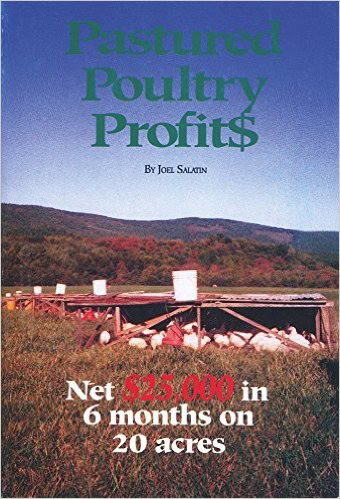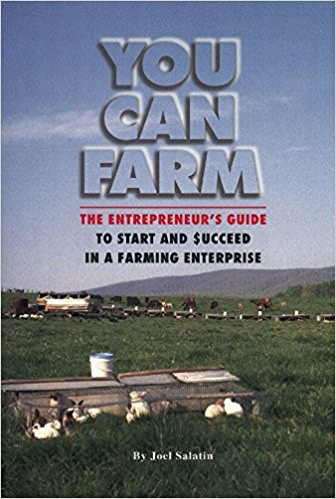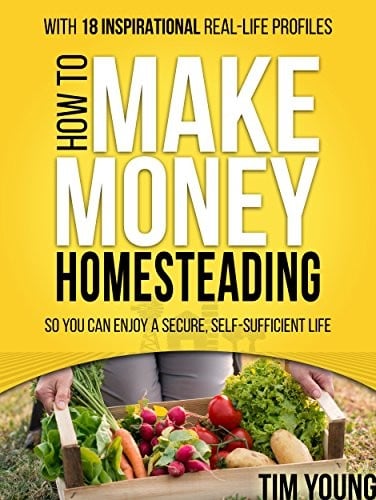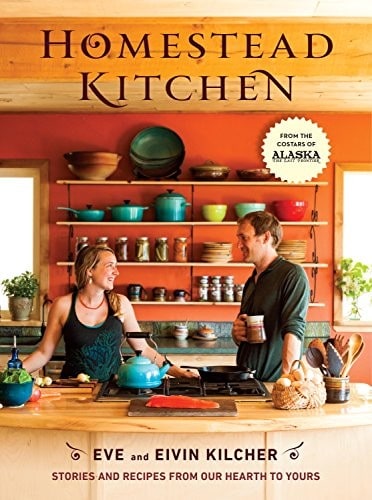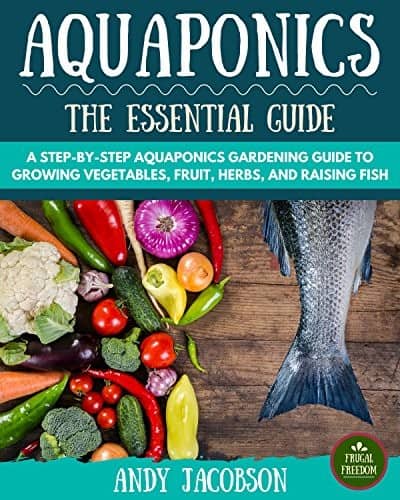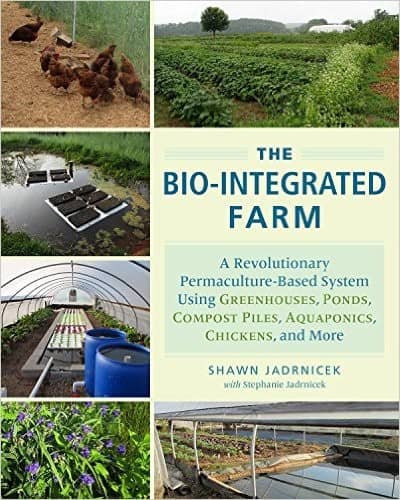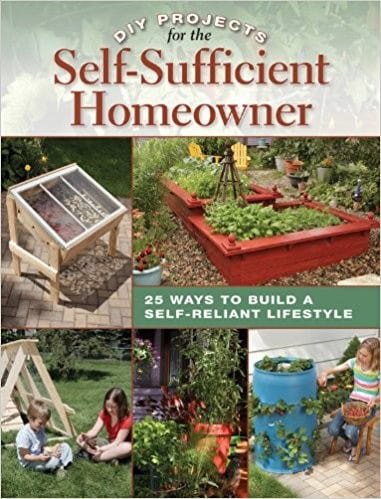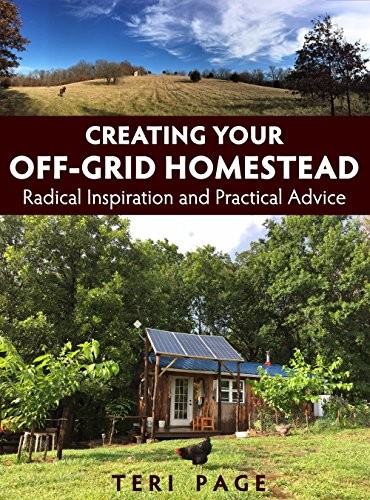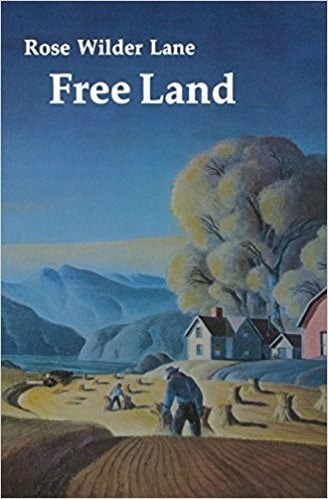As you embark on the homesteading journey, it’s crucial to strike a balance between hands-on experience and theoretical knowledge. While practical skills are essential for success, having a solid understanding of what lies ahead can help navigate the more challenging aspects of this lifestyle change. One way to gain this insight is by reading informative books that offer valuable guidance and real-world perspectives.
To get started, it’s helpful to know which books are worth your time and investment. Here are some top recommendations to consider:
Books to Help you Get Started on the Homesteading Journey
The Encyclopedia of Country Living by Carla Emery.
This book serves as a comprehensive guide for homesteaders, encompassing a wide range of essential skills and knowledge. It’s a must-have resource that covers everything from chicken husbandry to monetizing one’s work. As someone who has been on this journey, I recall it being the first book I consulted on the subject, and even today, it remains my go-to reference for answering any questions that may arise.
While it’s an excellent starting point, readers should be aware that the book doesn’t delve deeply into each topic. Instead, it provides a solid foundation, which is then built upon through further exploration and learning.
Rebuilding the Foodshed by Philip Ackerman-Leist.
If you’re seeking inspiration to make a positive impact and understand why others are doing the same, look no further than these two remarkable books. Written with passion and dedication by Carla Emery and Philip Ackerman-Leist, they offer hands-on experiences and insights into their journeys. As founder of the farm at Green Mountain College in Poultney, Vermont, Ackerman-Leist brings a wealth of knowledge and expertise to his writing, making this book a true labor of love.
The Weekend Homesteader by Anna Hess.
Becoming a homesteader can be an intimidating prospect, but this book simplifies the process by dividing chores into manageable seasonal tasks that can be accomplished on weekends. This approach is particularly appealing to individuals with busy weekday schedules who long to dedicate more time to their homes and personal lives.
The Homestead Companion by Jennifer Poindexter
At MorningChores, we’re fortunate to have Jennifer as our most prolific contributor. With her expertise, she’s helped countless individuals launch their own homesteading journey by sharing practical advice on cultivating and preserving their own food, raising small livestock, and implementing cost-saving strategies.
The beauty of The Homestead Companion lies in its ability to guide readers through the initial stages of this process, providing a clear starting point for those eager to start building their self-sufficient lifestyle.
Ball’s Complete Book of Home Preserving by Judi Kingry and Lauren Devine.
For those new to canning, this comprehensive guide is an excellent resource that caters to all levels of expertise. The book delves into various techniques and provides a thorough understanding of the scientific principles involved. What I particularly enjoy about this publication is its approachability, making it easy for both beginners and experienced canners to learn and improve their skills.
One of my standout recipes from the book is the Jellied Cranberry Sauce on page 179, which showcases the author’s creativity and expertise in creating delectable and preservable condiments.
Natural Healing Wisdom & Know-How by Amy Rost
When people envision a self-sufficient lifestyle, they often focus on aspects like gardening and food preservation, but another crucial component that’s frequently overlooked is maintaining physical and mental well-being through unconventional approaches. This book explores innovative ways to prioritize health, including the use of homeopathic remedies, energy healing modalities, and ancient Eastern medical practices.
Barnyard in Your Backyard by Gail Damerow
For those seeking a comprehensive guide to various animals, this book is an excellent resource for determining which species are best suited for your homestead. What sets this publication apart is its author’s empathetic approach, recognizing that readers may lack prior knowledge about the different creatures. As such, she provides in-depth information without sacrificing clarity or tone, making it accessible to a wide range of readers.
Keep Chickens! By Barbara Kilarski.
For urban or suburban homesteaders looking to keep chickens, this book is an absolute must-read. The author’s infectious enthusiasm makes it impossible to stop turning the pages. One of the most valuable aspects of the book is its comprehensive coverage of various topics relevant to chicken-keeping. Building your own coop, for instance, can be a game-changer in terms of saving money – and this topic is thoroughly explored.
Soil Sisters by Lisa Kivirist
For many women who share my passion for homesteading, finding a sense of community and understanding with like-minded individuals is crucial. The rise of female farmers is an inspiring phenomenon that transcends borders and cultures, yet it’s essential to acknowledge the unique challenges we face as women in agriculture. This book offers a refreshing perspective, unafraid to tackle the tough questions and concerns that plague female farmers today.
As I’m sure many readers will agree, having someone who ‘gets it’ from a feminine standpoint can be incredibly empowering – even when there’s a supportive partner by our side.
Seed to Seed by Suzanne Ashworth and Kent Whealy
When it comes to preserving a sustainable gardening practice, one crucial aspect is often overlooked: seed saving. This approach not only helps reduce annual expenses but also allows for selecting the best-performing plants to produce seeds from. As different plant species have unique characteristics and requirements, understanding how to save seeds can be a game-changer.
By doing so, you’ll gain access to tried-and-tested techniques, eliminating the need to conduct extensive research on your own. This approach not only saves time but also ensures that you’re producing high-quality fruits and vegetables for years to come.
Your Custom Homestead by Jill Winger
For those who feel overwhelmed by the idea of starting a homestead or seeking beauty in a chaotic life, this book offers a beacon of hope and inspiration. The author’s vision is to empower individuals from all walks of life to bridge the gap between their current reality and their dream, making it an incredible read that will leave you feeling motivated and uplifted.
Pastured Poultry Profit$ by Joel Salatin
Joel Salatin’s books on homesteading are well-known and respected, and two of his most notable works are Pastured Poultry Profit$, which offers a more personal and accessible approach to raising chickens. Unlike some science-heavy texts that may intimidate those new to homesteading, this book provides practical guidance on moving your flock, recognizing weather patterns, butchering, and selling your poultry.
It’s an ideal resource for anyone looking to start or expand their backyard chicken-keeping operation. To get the most out of Pastured Poultry Profit$, I recommend taking notes as you read through the book, which will make it easier to refer back to later.
You Can Farm: The Entrepreneur’s Guide by Joel Salatin.
For those seeking to transform their homestead into a thriving enterprise, Salatin’s approach offers a unique advantage. By diversifying the animals grazing on the land and alternating their presence, he’s able to generate a profit without requiring an extensive initial output. This tried-and-true method has been consistently tested and refined, making it an attractive option for homesteaders looking to turn their passion into a full-time business.
How to Make Money Homesteading by Tim Young
In his latest book, the author takes a closer look at profit margins, highlighting another successful title. By speaking with eighteen homesteaders, Young gains valuable insights into how these individuals generate income from their land or through passive revenue streams. A common thread runs throughout each of the eighteen interviews: every single one of them has multiple sources of income, demonstrating the importance of diversification in achieving financial success.
Homestead Kitchen by Eve and Elvin Kilcher
Eve and Elvin Kilcher’s cookbook, Homestead Kitchen, is a remarkable achievement. The couple’s passion for sharing their knowledge with others shines through in this beautifully written book. What sets Homestead Kitchen apart from other cookbooks is its focus on adaptability. They emphasize the importance of modifying recipes to suit one’s local environment, which resonates deeply.
The stunning photographs throughout the book are the perfect accompaniment to the delicious and practical recipes within.
Aquaponics – The Essential Guide by Andy Jacobson
Aquaponic gardening has gained popularity due to its efficiency and unique approach, where plants are grown in water that’s home to fish. This symbiotic relationship allows the plants to thrive while providing a natural food source for the fish. For those interested in exploring this concept further, Andy Jacobson’s ‘Aquaponics The Essential Guide’ is an excellent resource.
While it provides a comprehensive introduction to getting started with aquaponic gardening, it may fall short in offering troubleshooting advice. However, the book’s guidance on designing your own aquaponics system makes up for its limitations, making it a valuable read for anyone looking to dive into this innovative approach to gardening.
The Bio-Integrated Farm by Shawn Jadrnicek
For those who are more inclined towards permaculture, this book is a must-read. It delves into the intricacies of resourceful practices, including setting up a pond and identifying areas with varying levels of shade throughout the year. The text is meticulously detailed, making it an excellent reference guide. One of the standout features of this book is its comprehensive section on raising chickens.
When combined with other books on similar topics, this one stands out for its unparalleled level of detail. In fact, some readers might assume that it was written specifically for a university-level course.
DIY Projects for the Self-Sufficient Homeowner by Betsy Mateson
As a homesteader, self-sufficiency is key. This means having the skills and resources to tackle projects on your own or barter with others who possess the expertise. A great place to start cultivating these skills is by reading books that cover a range of topics relevant to homesteading, such as building winter barns, constructing a cedar hot tub, and many other DIY endeavors.
Recipes for Self-Sufficient Living by Kay Martineau
While the availability of this book may be limited, its value far exceeds its rarity. Spanning a wide range of topics, it offers comprehensive guidance on artisanal pursuits such as crafting your own cheese and constructing a functional smokehouse. Additionally, readers will discover practical applications for everyday products, including the recipe for homemade shampoo.
Creating Your Off-Grid Homestead by Teri Page
What sets this book apart is its ability to provide readers with practical, contemporary advice on homesteading. Written from a place of authenticity, the author’s first-hand accounts of successes and setbacks offer valuable insights into the transition process. Given that she made this journey in 2012, her experiences serve as a relatable guide for those looking to start their own modern-day homesteading adventure.
Free Land by Rose Wilder Lane
While Laura Ingalls Wilder’s ‘Little House on the Prairie’ series might have painted an idyllic picture of life on the prairie, Rose Wilder Lane’s novel ‘Free Land’ offers a more nuanced portrayal. Written from Lane’s perspective and drawing from her mother’s childhood stories, ‘Free Land’ sheds light on the realities of homesteading.
While it may not be as rosy as we were led to believe as children, this book serves as a reminder that the challenges faced by homesteaders can ultimately lead to great rewards.
